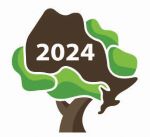Explore! Engage! Enjoy!
Explore (your family history)!
Engage (learn from the experts)!
Enjoy (the company of genealogy friends)!
In addition to the fabulous six marquee speakers delivering talks that cover topics on: DNA and Genetic Genealogy; sharing family history online; updates from the UK genealogy community; and ‘mind mapping’ for genealogy, 22 session speakers will present on diverse topics such as:
How to Organize and Pass on Your Family History by Kelli Bergheimer. Tracing your Caribbean Ancestors – prepare for your trip to your ancestor’s homes by taking a deeper look at local libraries and online resources, presented by Pooran R. Bridgelal. Paying Dearly for Free Land – A look at the Colonization road scheme of the 1850s and the Free Grants and Homestead Act of 1868 and how early settlers coped with the reality of the Canadian wilds as presented by Linda Corupe. And always useful, A Beginner’s Guide to Searching Online Ontario Land Records by Ken McKinlay.
Using Airtable for Cluster Research – On the website of Airtable.com, they explain: ’empowers teams to build custom apps on top of shared data.’ Are you curious yet? Sharing data – might this do with DNA research and how organizing your data into clusters can enhance your genealogy research? This will be presented by Mary Crosby, founder and editor of Detroit Gospel.com, a gospel music industry website, who also dabbles in organizing DNA data and genealogy research.
Mags Gaulden will help you push a little further back using another tool in DNA genealogy – a ‘Next Generation Sequence‘ test. Is this a Star Trek reference? 😉
Many of us have ancestors who struggled to ‘get by’ and in the 19th and early 20th centuries a formal government system was not available, but there was the ‘Local House of Industry or Refuge’. If this rings a chord with you, attend Gwyneth Pearce’s talk ‘Researching the Poor in Early Ontario‘. I will be interested to hear of this research as I have an interest in the workhouses and ‘Poor Law’ in the United Kingdom.
How did Robert Burns become such a beloved literary figure? David Bruce McCowan will ‘help us appreciate the heritage of Canada’s diverse cultures and people’. He will start with the First Burns Supper in Scarboro.
Are you interested in (do you understand?) the current AI – Artificial Intelligence that has been in the news lately? Joanne Gervais will give us an overview of how AI would be able to narrate your genealogy presentations and hopefully not turn red in the face like me! Her talk is called AI Video Creation for Genealogy
All of these 47 talks will include ‘Enhanced Presentations’, Workshops and Panel Discussions on Friday, Saturday as well as Sunday.
Less than 30 days until you are able to register and organize your schedule!




